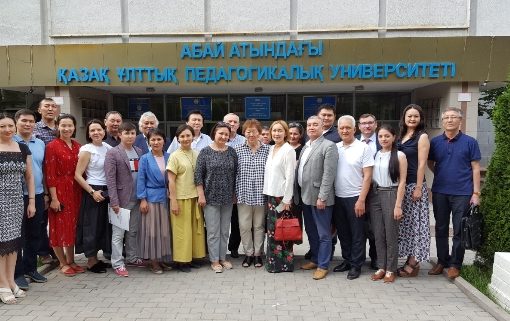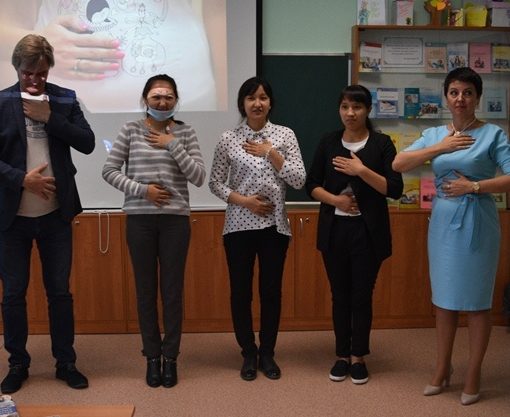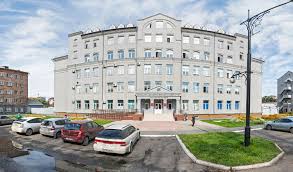In Karaganda region from June 13, 2020 tightening of quarantine measures in connection with growth of coronavirus infection COVID-19 in the region are introduced.
Teachers and staff of Bolashaq Academic support the decision of the chief medical officer of Karaganda region and in their social networks call for strict compliance with all measures.

Tnimova Gulbagiza Taufikovna, Doctor of Medical Sciences, Professor:
Dear friends, colleagues, students!
Yesterday I read with great sadness the information about quarantine strengthening in our region.
As everyone knows, the state of emergency in the country due to the spread of highly contagious virus Covid-19, in our country was introduced on March 16 this year, and such a situation persisted until May 11, and then, in particular, in Karaganda were declared quarantine releases.
Only 33 days have passed, and here we are! According to the requirements of the Chief State Sanitary Doctor of the RK, if the increase in morbidity in the region exceeds 7%, quarantine measures will be proceeded.
“In our region, this figure is 7.3%. Therefore, since June 13 certain restrictions will be accepted” – has informed mayor of Karaganda region…. (Read more: https://kursiv.kz/…/v-karagandinskoy-oblasti-vozvraschayut-…).
Why did this happen? A little, as they say, modern history.
COVID-19 is a new respiratory virus that’s spreading airborne. Coronavirus infection causes a potentially dangerous disease that can take the form of an acute respiratory viral infection in the lungs, or a severe form (~15%), up to and including death (~6.5%).
The period from the time of infection and the onset of symptoms is usually about 5-6 days, but may vary from 1 to 14 days (WHO figures). The long incubation period and asymptomatic progression of the disease in some infected individuals are the main difficulties in controlling the mass spread of infection. Notice that there is no antiviral vaccine, drug, or other treatment.
The virus was first registered on December 31, 2019 in Wuhan City, China. From January 22, Wuhan City was closed for quarantine, and from January 24, Wuhan’s surrounding urban districts. On 30 January, WHO recognized an outbreak of the new coronavirus as a Public Health Emergency of International Concern (PHEIC). On 11 March 2020, WHO announced that the outbreak had become a pandemic.
A huge number of statements about the pandemic have appeared in the media, largely critical, and most often coming from amateurs. I do not want to start a discussion here, the task of understanding what to do in today’s situation.
The science of epidemiology says that the most effective measure to protect against a highly contagious virus is quarantine. Compliance with certain rules, even though they seem redundant, to say the least. But think about it, we all follow the rules of the road, and stand at the crossing at a red light traffic lights, although there are no cars nearby! We don’t challenge these rules, we take them for granted!
After the announcement of the quarantine, almost everybody took off their masks, their hands stopped working, in shops, buses and other crowded places – without masks – began to organize festivities!
Well, the infection rate increased, and we’re back in quarantine.
Remember, among the main measures of protection against the spread of coronavirus, the WHO has announced for every resident:
washing and careful hand hygiene;
elimination of touching the eyes, nose and mouth with the hands (in particular, it requires a medical mask);
cover your mouth when coughing with an elbow fold or a disposable handkerchief.
(Disposable handkerchief used should be immediately thrown out and hands washed);
keep a distance of at least 1 meter from the surrounding area (social distance);
When the temperature rises, call an ambulance at home. i.e., self-protection, self-disengagement, self-insulation.
These rules should become a habit in the near future.
I wish everyone health and, of course, optimism!
Source: https://www.facebook.com/gulbagiza.tnimova/posts/1420171868191181





